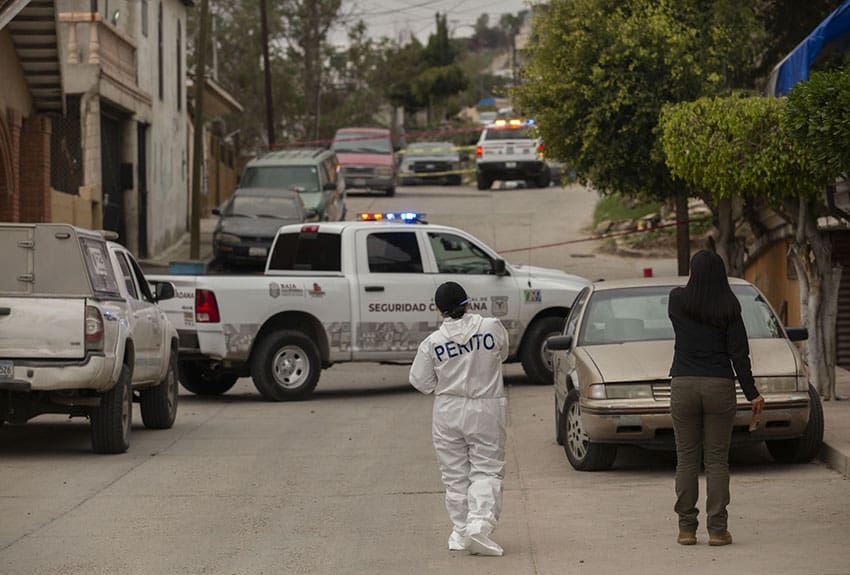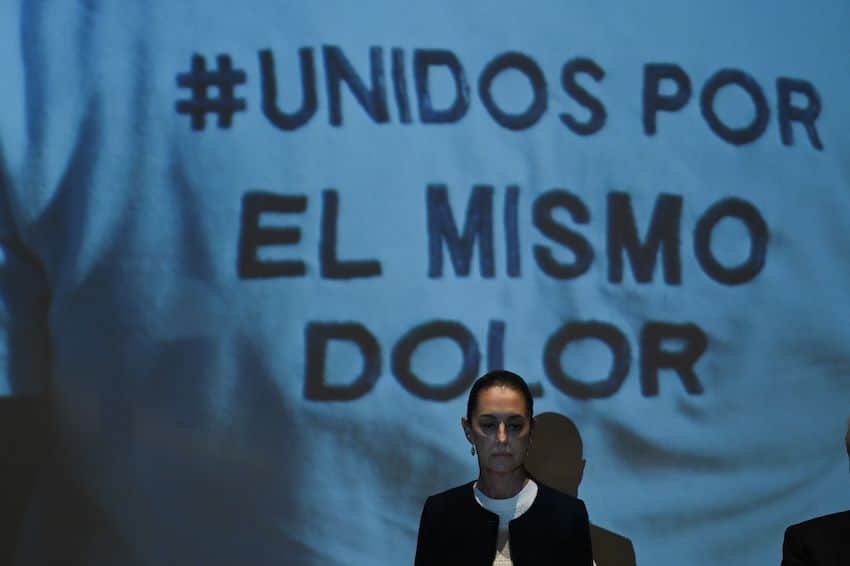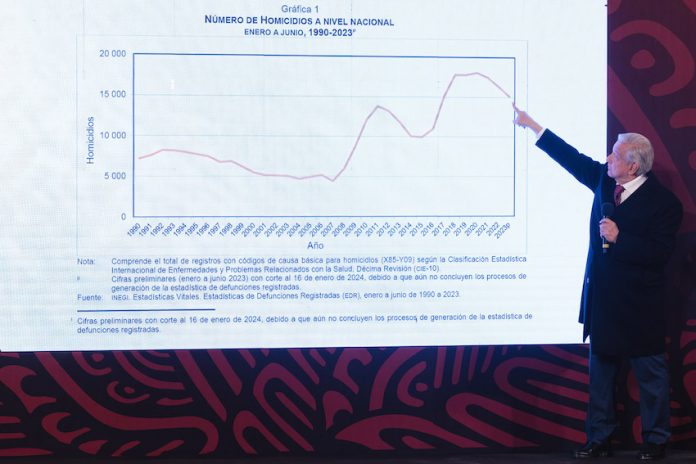Homicides declined 3% in Mexico in the first two months of 2024 compared to the same period of last year, according to federal government data presented on Tuesday.
Data displayed by Security Minister Rosa Icela Rodríguez at President Andrés Manuel López Obrador’s morning press conference showed there were 4,737 homicides in January and February, 147 fewer than in the first two months of 2023.

Rodríguez highlighted that the number of murders in February — 2,304 — was 25% lower than the historic peak of 3,074 recorded in July 2018.
Almost half of all homicides in the first two months of the year occurred in just six of Mexico’s 32 federal entities. Guanajuato — the country’s most violent state in recent years — recorded the highest number of murders with 481, followed by México state (418); Baja California (415); Chihuahua (346); Guerrero (301); and Jalisco (296).
There was a total of 2,257 murder victims in those states in January and February, a figure that accounts for 47.6% of the national total. Organized crime groups have a strong presence in each of Mexico’s most violent states, and a large number of the murders occur during confrontations between rival cartels or in planned attacks.
Rodríguez also presented data that shows that the average number of daily homicides so far this year is 22% lower than the average in 2018, a year during which Enrique Peña Nieto was president through November.
López Obrador’s six-year term is already the most violent on record with more than 180,000 recorded homicides and femicides, but data shows that the current president is the first leader since Ernesto Zedillo (1994-2000) to oversee a reduction in murders while in office.
Continuing the downward trend will be a key challenge for Mexico’s next president, who will take office on Oct. 1.

To that end, all three candidates last week endorsed a “Commitment for Peace” document drawn up by Mexico’s Roman Catholic leadership, although leading aspirant Claudia Sheinbaum also expressed disagreement with the Church leaders’ assessment of the current security situation and some of the peace-building proposals they put forth.
Meanwhile, electoral violence remains a major problem just two and a half months before voters go to the polls in what will be Mexico’s largest-ever elections.
In February alone, there were 36 murders “associated with political-criminal violence,” according to the monthly “Votar Entre Balas” (Vote Between Bullets) report published by the organization Data Cívica.
Aspirants to elected office, government officials and family members of people involved in politics were among the victims.
With reports from N+ and Expansión Política
